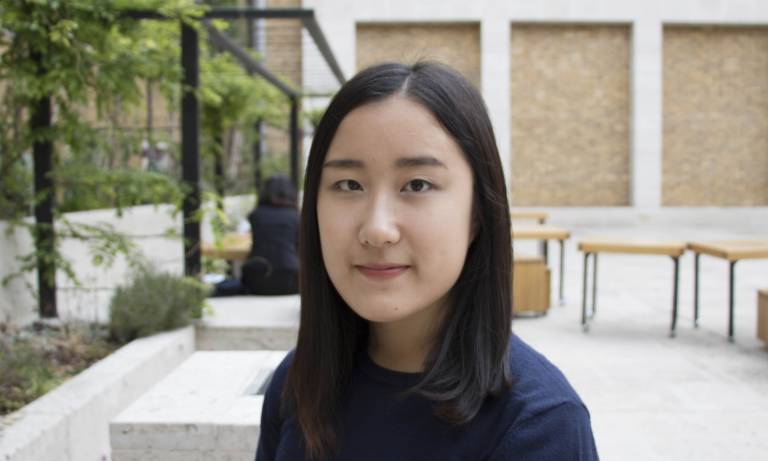Kit Sum Tsui, MSc Ophthalmology

1. What is your educational background?
I graduated from Southern Medical University in southern China. I wanted to further my studies in ophthalmology and study abroad so that I could gain more experience. I chose the best place in the world to study ophthalmology – UCL Institute of Ophthalmology.
2. What are your motivations for pursuing a graduate-level qualification?
During clinical rotation, I was very impressed by the ophthalmologists' ocular-imaging and microsurgical skills. Combined with the state-of-the-art equipment and the clinician’s professionalism, they were able to cure the patients successfully. As a result, I was very keen to learn more on these two subjects.
3. Why did you apply to UCL for graduate study?
The programme is run by top ophthalmologists. It provides opportunities to interact with world-leading clinicians from Moorfields Eye Hospital and other prominent institutions. It also provides opportunities to exchange medical experiences with other international students. Moreover, UCL is situated in London where I could visit famous museums and galleries to enrich my international knowledge and experience.
4. What is the best thing about your course?
The lecturers are knowledgeable. In particular, Professor Omar was very receptive to my needs and he even sat in on lectures with us. His passion and professionalism are highly admirable, and I really respect his ethos: to widen everyone’s knowledge on the retina so that we have a deeper understanding of it.
5. What do you find interesting about your field of study and what inspires you?
I enjoyed learning about the retina, especially its functions, because it allows people to see our colourful beautiful world.
6. What are your career plans once you’ve completed your current programme of study at UCL?
After graduation, I will be looking to pursue a PhD in Ophthalmology. After this, I intend to work as a hospital ophthalmologist to apply my skills and experience. I would also like to help train young ophthalmologists and promote public awareness of eye diseases. I am particularly inspired by the ‘Orbis Flying Eye Hospital’, an air hospital that flies to developing countries to provide training for doctors and nurses, as well as delivering sight-saving surgeries. I would like to launch something similar with like-minded ophthalmologists to help patients in rural areas of China.
I have attended several UCL Careers workshops which were very useful and enjoyable. I also met a life science tutor who helped me with my CV for my PhD application.
7. Do you think studying at UCL Institute of Ophthalmology is a good investment?
Yes. Moorfields Eye Hospital is the world-leading eye hospital. This will reflect well on my academic achievements and I think it will be particularly attractive for future employers.
8. What is it like studying in London and how do you think it has benefited your studies?
There are lots of important exhibitions and conference that are held in London. Living and studying in London means that I am able to access these events easily.
9. Has there been an element of your degree programme that has impressed you or been particularly valuable?
Access to Moorfields Eye Hospital.
10. How do you think the system of learning/researching at UCL differs from that in your own country?
In China, we only have lectures and we do not have small group discussions or practical sessions to delve deeper into topics. Any discussions that we did have were in big groups, so there isn’t much time to go through things in detail. Whereas, the tutorials we had in UCL were very useful because the groups were smaller, and we had more time for discussion.
 Close
Close

